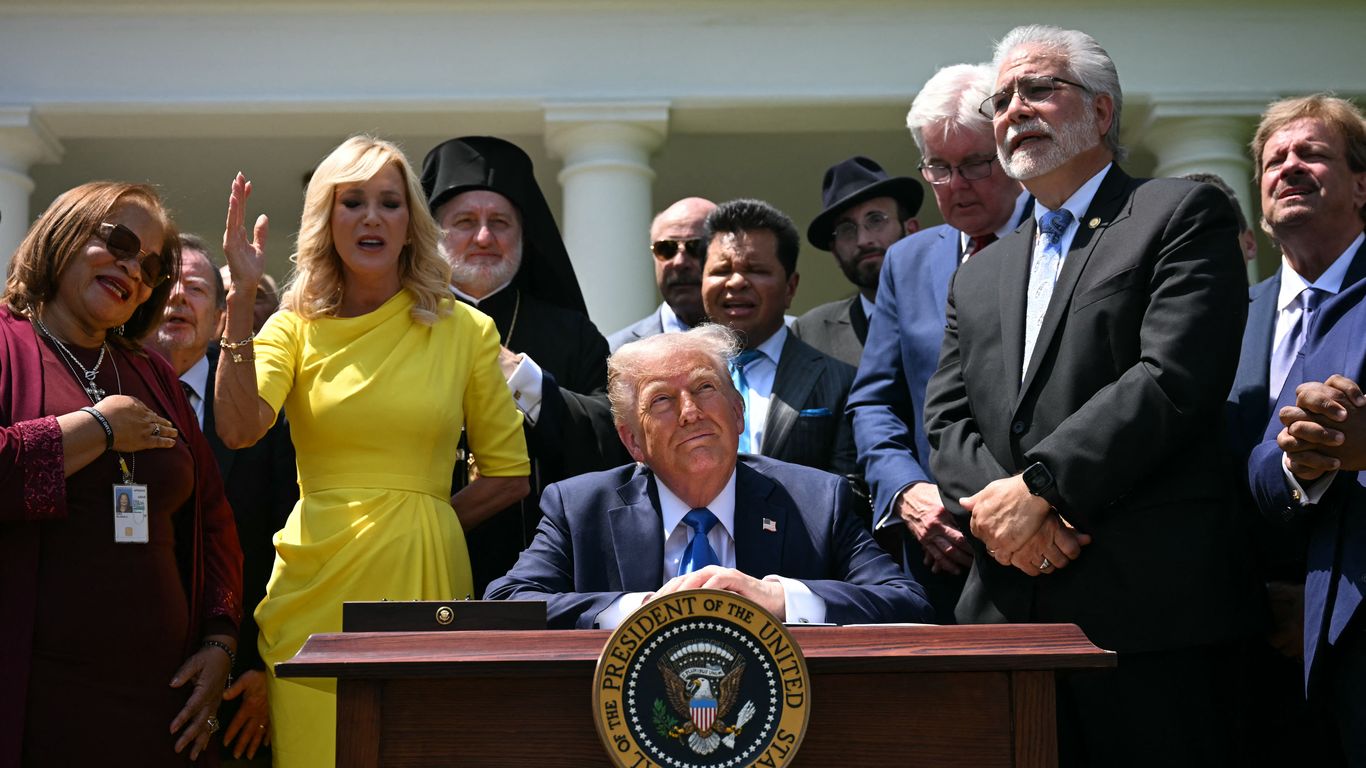Faith and Freedom: Trump Launches Landmark Religious Liberty Commission

In a bold and controversial statement, former President Donald Trump challenged the long-standing principle of church-state separation, suggesting a willingness to blur the traditional boundaries between religious influence and governmental policy. During a recent public address, Trump provocatively declared, "They talk about 'separation between church and state' - well, I say, let's set that aside just this once."
His remarks have reignited a heated debate about the role of religious beliefs in political decision-making, drawing both passionate support and sharp criticism from various political and constitutional experts. The statement reflects Trump's ongoing approach of challenging established norms and pushing against traditional political conventions.
The comment underscores a broader conversation about the delicate balance between religious freedom and governmental neutrality, a topic that continues to spark intense dialogue across the American political landscape.
